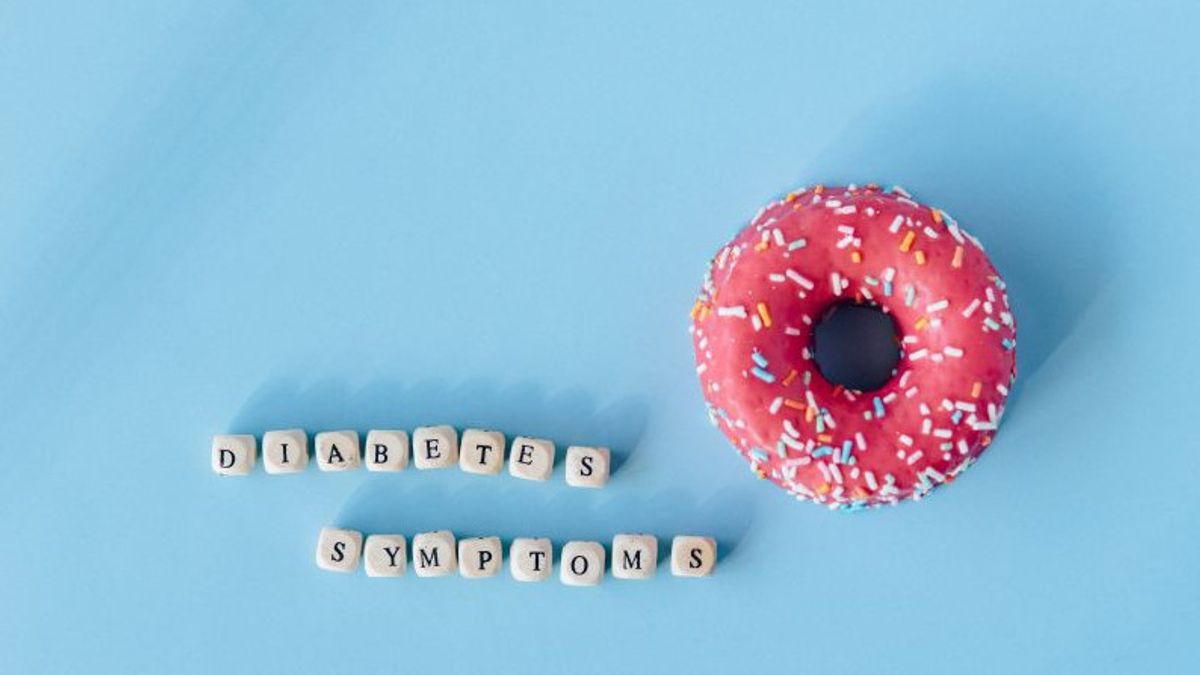JAKARTA - Chairman of the Indonesian Pediatrician Association (IDAI) Dr. Piprim Basarah Yanuarso, SpA(K) dismissed the notion that diabetes mellitus will only occur in obese children.
"Thin children can also suffer from type 1 diabetes mellitus. So be aware that children eat a lot, drink a lot, urinate frequently and their body weight continues to decrease," Piprim said in a webinar related to diabetes in children some time ago, as reported by Antara, Monday.
Piprim explained that children sometimes do not understand why they often feel hungry (polyphagia), often feel thirsty (polydipsia), and often urinate at night (polyuria). The three symptoms that are often called the 3Ps are common symptoms in people with diabetes mellitus and can occur in children.
"You should immediately check your child's sugar levels, especially if you have a family history of diabetes mellitus," said Piprim.
Agreeing with Piprim, Head of IDAI Endocrinology Coordination Work Unit (UKK), Dr. Muhammad Faizi, SpA(K) explained that children with type 1 diabetes mellitus generally have a thin body shape.
Faizi said it was caused by the depletion of fat reserves in the body due to a lack of insulin reserves.
"In type 1 diabetes mellitus, the patient's condition is insulin deficiency due to pancreatic beta damage. In this condition insulin looks for other sources, namely fat, so children tend to be thin," explained Faizi.
This is different from type 2 diabetes mellitus where patients tend to be overweight and even classified as obese.
"Because of the lack of vigilance and the assumption that thin children will not have diabetes, type 1 diabetes mellitus patients often come to health facilities in a diabetic coma. This is very serious," explained Faizi.
So Faizi reminded parents not to hesitate to screen their children for blood sugar if they experience 3P symptoms and have a family history of diabetes.
SEE ALSO:
Children with type 1 diabetes mellitus should receive lifelong insulin injections five to six times a day. This must be done to keep the patient's metabolism in balance and well maintained.
"Once diagnosed with diabetes, you have to experience this for a lifetime, what you can do is control your metabolism and be controlled to get a good quality of life," said Piprim.
The survival rate of patients with type 1 diabetes mellitus, Piprim said, could also be the same as those without diabetes as long as it is under control.
"If it is not controlled, it will attack other organs such as kidney failure, blindness, and others," concluded Pimprim.
The English, Chinese, Japanese, Arabic, and French versions are automatically generated by the AI. So there may still be inaccuracies in translating, please always see Indonesian as our main language. (system supported by DigitalSiber.id)















